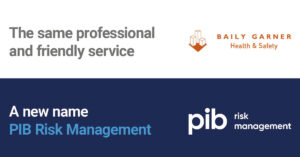In March 2020 the Government published the findings of a review of safety on SMART motorways and an action plan to improve safety. Plans included:
- Abolishing the Dynamic Hard Shoulder type of motorway and replacing them with All Lane Running motorways by the end of March 2025, in order to reduce driver confusion.
- Speeding up the roll-out of ‘stopped vehicle detection systems’, currently in use on two sections of the M25, to all current SMART motorways within 36 months.
- Increasing traffic officer patrols on SMART motorways.
- Where practical, providing emergency stopping areas every ¾ miles, making these areas more visible with increased signage. Where practical, increase the width of narrower existing emergency areas to the current 15-foot standard (this compares with 11-foot for a traditional hard shoulder).
- Providing additional information for drivers, including updating the highway code.
The Government has now published a statement and progress report detailing what has been achieved in the first 12 months.
In a written statement to parliament it is reported that Highways England has:
- launched a major road safety campaign to give drivers clear advice about what to do in the event of breaking down
- completed work to turn emergency areas orange so they are more visible to drivers and improved the signage letting drivers know how far they are from the next place to stop in an emergency
- installed 10 more emergency areas on the M25 around London
- held a public consultation on proposed changes to the Highway Code that will provide more information about motorway driving
- continued to upgrade cameras so they can automatically detect red X violations
- introduced radar-based stopped vehicle detection technology on stretches of the M3 and the M20, with work underway on the M1
The full statement can be viewed on the Gov.UK website at https://www.gov.uk/government/speeches/highways-england-first-year-progress-report-on-smart-motorways-stocktake where you can also find a link to download the full report.
It is important that suitable policies are in place where you have employees who drive as part of their work. Please speak to your normal PIB Risk management contact or get in touch using [email protected] if you have any questions or would like assistance with developing a safe driving or occupational road risk policy.

A new name for Baily Garner (Health and Safety) Limited

50 Years of the HSE and the Health & Safety at Work Act

Building Fire Safety Updated Approved Document B Published

Protecting Properties Against Flooding

The Building Safety Act – Are you meeting your legal responsibilities?
